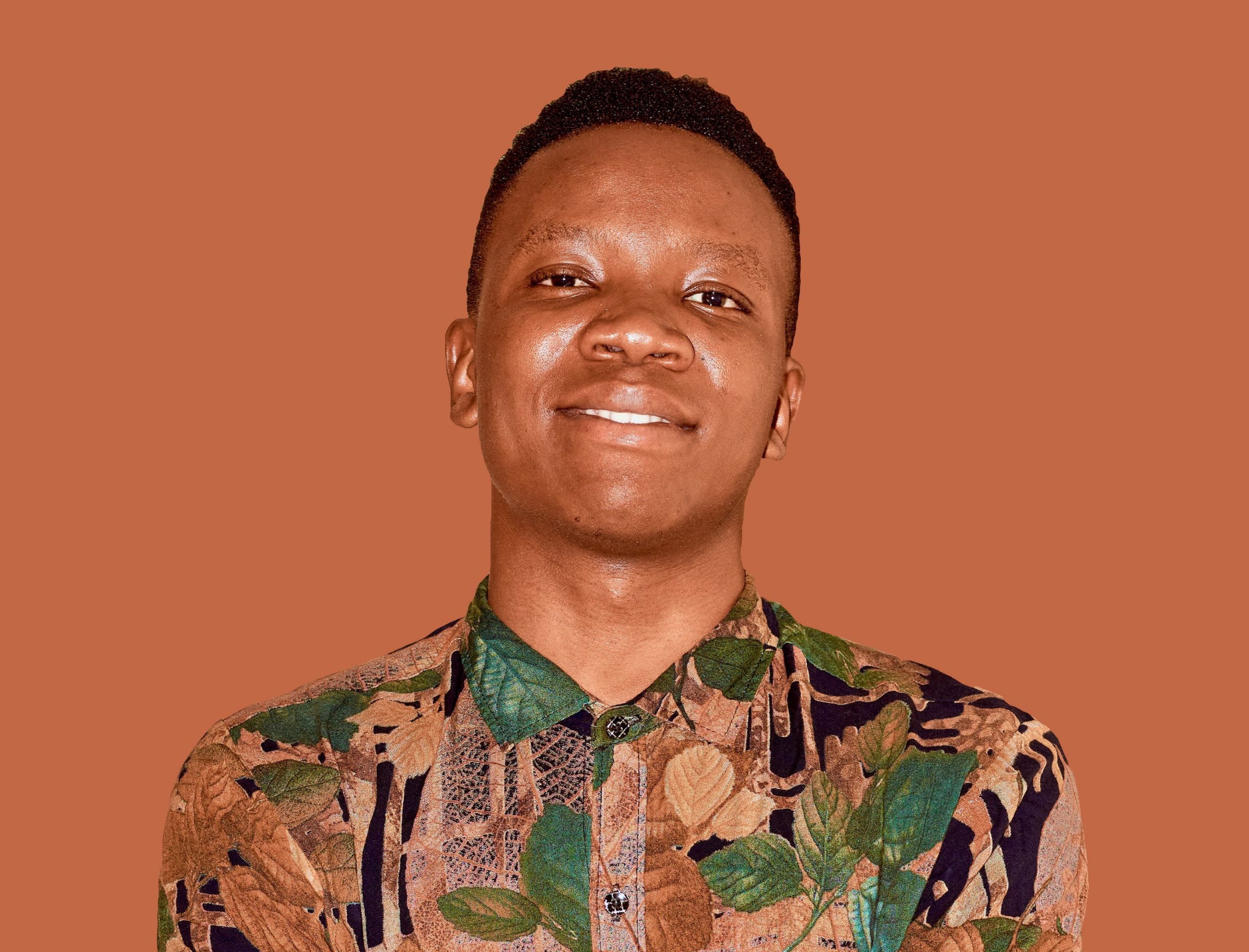Story
Gerald

Opening the digital economy to more Tanzanian youth
Gerald Mukama remembers the first time he built a website: “I was so amazed that I could use computers to do what I wanted to do—change the colours, add the content and the animation. I am the type of guy who is really into designing.”
The young Tanzanian social entrepreneur’s reaction surprised him. Until he graduated secondary school, Gerald thought technology was primarily used for playing games and never considered a career in the sector.
Slowly, and with the prompting of his mother, he fell in love with technology. What started as a short course on cyber-security evolved into a year-long IT certificate. Finishing that certificate in 2018, Gerald joined the NLab Innovation Academy in Dar es Salaam.
There, he met a young woman who had created an initiative to solve problems in her community. “After that I started to think about what I should do. I was very much inspired,” says Gerald. He founded Vijana Tech a year later while participating in the Africave Fellowship Program for Young Africans.
Throughout the COVID-19 pandemic, Vijana Tech has been supporting youth with capacity building, skills development, and mentorship. Through its activities, the initiative helps youth recognize the diverse opportunities available in the digital economy and cultivates the skills and confidence to take advantage of those possibilities. The training is free and the only prerequisite to join is a passion and curiosity to learn about technology.
Connected to Gerald’s desire to lead community change, Vijana Tech also encourages youth to use what they have learned to address the pressing challenges they see around them.
In nurturing this entrepreneurial, problem solving mindset, Vijana Tech also tackles an urgent challenge experienced firsthand by Gerald and his peers: youth unemployment. Similar to other countries in sub-Saharan Africa, Tanzania has a large youth population. This means there are more young people looking for jobs than there are roles to fill.
“Formal jobs are so scarce here in Tanzania, it’s a big employment crisis,” explains Gerald. “I wanted to help other youth to not be dependent on formal jobs and to instead teach them the soft skills to help them create jobs and be self-employed.”
To date, Gerald and his co-founder, Emmanuel Mtera, have run two online training sessions that have reached more than 100 youth across Tanzania. From web development to computer programming, graphic design to digital marketing, youth who finish the training have been able to freelance full-time or do so while looking for formal employment.
The Vijana Tech team also oversees a number of community side projects, such as Find My Hostel, a search platform that helps Tanzanian university students track down quality student accommodation at an affordable price.
“Leveling-up” his initiative
Gerald has been involved with Digital Opportunity Trust in several ways since the pandemic began. He joined the second cohort of the #DOTYouth Street Team in January 2021 and has presented to attendees from DOT’s Tanzania Youth Digital Summit (TYDS) about how to be an entrepreneur and navigate the digital and freelancing space.
Gerald also remains in close contact with a number of Street Team members from Tanzania. He partnered with Ashura Babi, founder of GigSpace, to run a training workshop on freelancing and the gig economy, and is also providing technical support for #DOTYouth Salma Kasonta and her app, Coco Menstrual & Maternity Health.
“Throughout [the Street Team] program the experience was so amazing,” says Gerald. “I was inspired by a lot of my fellow Street Team youth and the support and the energy throughout the program was amazing. It was the biggest opportunity I received so far.”
Leveraging the #DOTYouth Street Team experience and certificate, Gerald has been able to secure new clients—which will enable Vijana Tech to reach more young people, as all revenue generated goes toward the free training. Even DOT Tanzania has engaged Gerald to build a content management system.
In the future, Gerald would like to expand Vijana Tech into an academy to reach an even greater number of youth who can tackle increasingly complex problems using technology. Just as he has found opportunity in the digital economy, so too can others. Vijana Tech is making sure of it.
Are you our next Community Leader, Digital Champion, or Social Innovator? Learn more about how to join #DOTYouth
Join #DOTYouthShare this Story
More STORIES
Read more inspiring stories like Gerald.